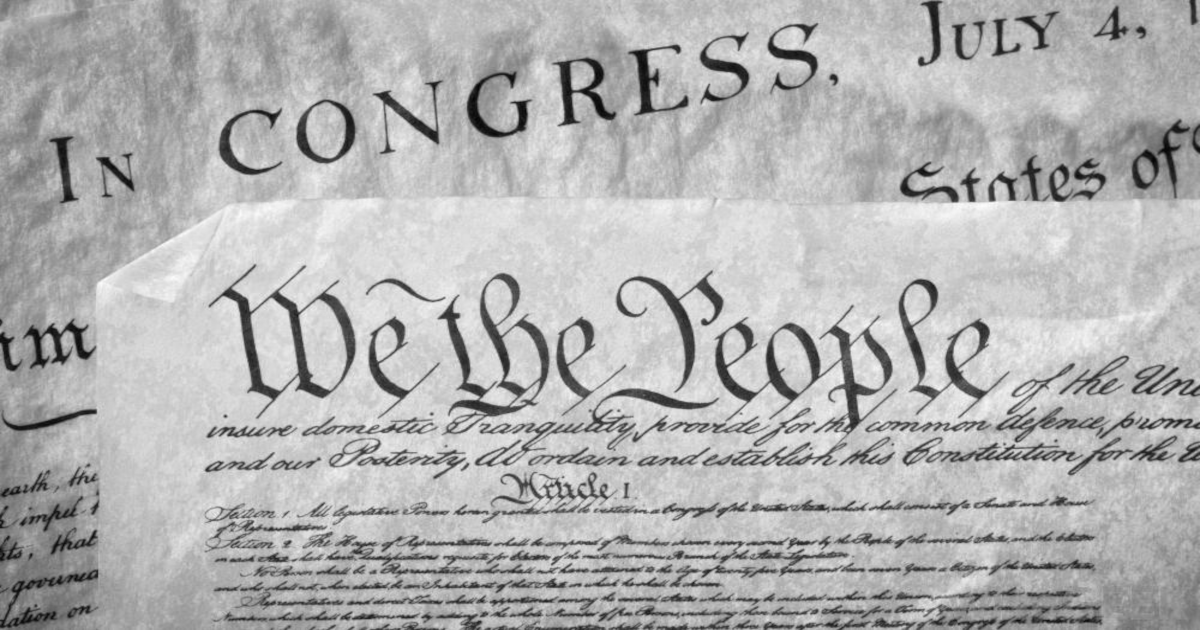Deposited Authority
© 02.24.21 By David Eric Williams
 (Zedekiah) did evil in the sight of the LORD his God, and did not humble himself before Jeremiah the prophet, who spoke from the mouth of the LORD. And he also rebelled against King Nebuchadnezzar, who had made him swear an oath by God; but he stiffened his neck and hardened his heart against turning to the LORD God of Israel (2 Chronicles 36:12-13).
(Zedekiah) did evil in the sight of the LORD his God, and did not humble himself before Jeremiah the prophet, who spoke from the mouth of the LORD. And he also rebelled against King Nebuchadnezzar, who had made him swear an oath by God; but he stiffened his neck and hardened his heart against turning to the LORD God of Israel (2 Chronicles 36:12-13).
Some time ago, I wrote about what it means for Christians to submit to civil authorities. In the ensuing months it has become clear that many Christians do not understand the doctrine presented in Romans 13 when it says, let every soul be subject to the governing authorities. For there is no authority except from God, and the authorities that exist are appointed by God. Therefore whoever resists the authority resists the ordinance of God, and those who resist will bring judgment on themselves (Romans 13:1-2). To some folks, this simply means, "do whatever the civil authorities say." This ignores the Bible supplied context of the command.
The Bible is consistent in teaching that all authority comes from God, (see above and Proverbs 8:15-16, Jeremiah 27:5-8, Daniel 2:21, John 19:11 etc.). Moreover, it is clear God "deposits" his authority in a certain place in every circumstance. For instance, in the sixth century BC, God deposited authority in the person of Nebuchadnezzar, king of the Babylonian empire. His authority extended throughout the ancient Middle East and held sway over the nation of Judah and its king, Zedekiah. Thus, to rebel against Nebuchadnezzar was to rebel against God.
In much of the first century AD world, God deposited his authority in the person of the Caesar. All authority in the Roman Empire flowed from Caesar and every governor, prefect and tax collector applied the authority of Caesar in their duties. This did not mean their personal authority was unchallenged. Indeed, Paul rejected the ruling of Festus, procurator of Judea in his appeal to Caesar (Acts 25:11). This does not seem consistent with the admonition to be "subject to the governing authorities." Yet, it was Paul's right as a Roman citizen and was an appropriate action under the rule of the authority deposited by God in the Roman Emperor. Thus, we see it is right to appeal to the locus of civil authority according to the structure of the civil society and the historical and cultural circumstance.
Therefore, we should not blindly obey all laws imposed upon us. Rather, we have the duty to look to the place where God has deposited his authority to discern the validity of the law. In the ancient world, God's authority rested upon emperors and kings. In the United States of America the Declaration of Independence, the United States Constitution and the various state constitutions as they apply are the ultimate repositories of civil authority.
When there is an illegitimate exercise of civil authority, Christians should demand local civil servants respect and uphold the national and state foundational documents. Too often, local and state authorities give in to the greater magistrates (state or federal), without a fight. In so doing, they ignore the real place of authority. Bible believing Christians cannot allow this to happen. We need to hold public officials feet to the fire and demand they obey the foundational documents or use the election process to replace them with men and woman who understand where they derive the authority to govern.
More on this in a couple weeks.
Click Here For The Second Article In The Series
Entire Site Copyright © 2025 By David Eric Williams










